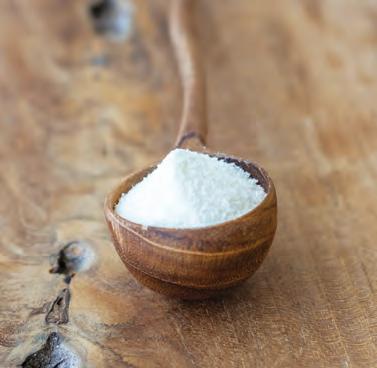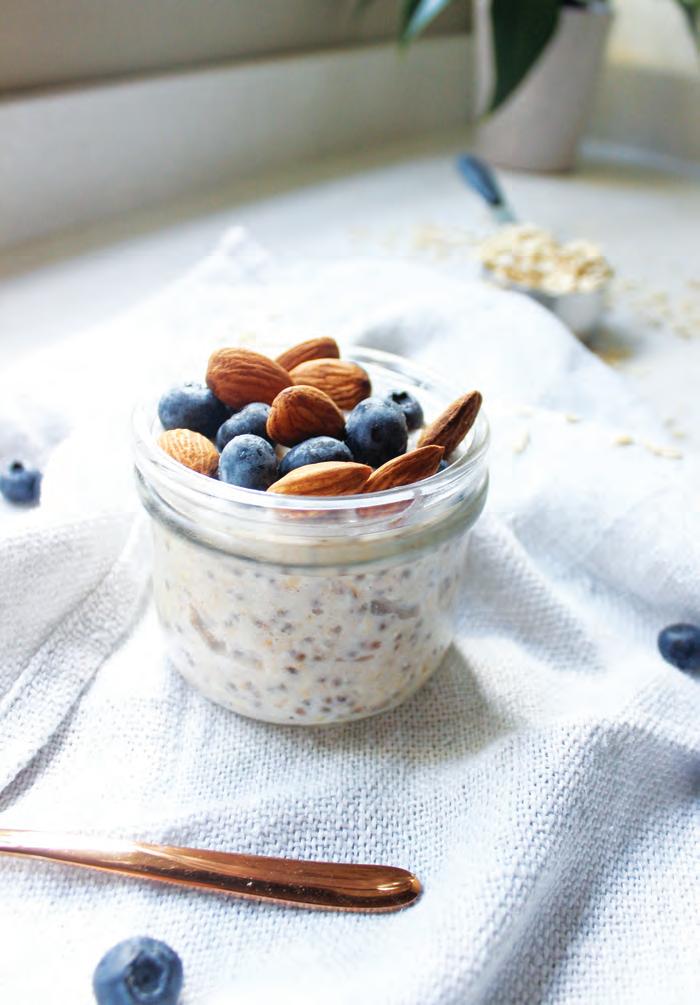
5 minute read
Collagen 101
from The Crest 94

KATRINE ANKER-NILSSEN TAKES A CLOSER LOOK AT THE HYPE AROUND COLLAGEN SUPPLEMENTS
Advertisement
Collagen has been around in cosmetics for a while, but is a relatively new kid on the block when it comes to supplements. Its benefits certainly sound intriguing, but is it just another health fad? Let’s find out why you should be taking it, and how you can ensure you’re taking the best possible product.
“Collagen is the most abundant protein in our body. It is found in our bones, muscles, skin, and tendons. It’s the glue that holds the body together, and forms a foundation to provide strength and structure,” explains registered dietician Danielle Roberts – the Sharks rugby team’s nutritionist.
Strengthening the skin by improving elasticity and hydration, collagen can keep us looking younger by slowing down the aging process. It may also help improve joint pain and maintain bone mass. “Bones are mostly made of collagen, which give them structure,” explains Danielle. “As we age, we lose bone mass density. Taking collagen can help increase bone density and prevent bone disorders like osteoporosis.”

Collagen may also help gut health issues by strengthening the lining of the gut – making it less permeable and more effective in retaining nutrients from food – and improving gut absorption issues. This, however, needs more scientific research. “Most of the research done has been on joint and skin health, showing beneficial effects,” says Danielle. “Although larger studies are needed, I have many older clients who on taking the right collagen can feel the difference in their skin, hair growth and nails in just one to two months.”


When combined with exercise, collagen may also boost metabolism by increasing lean muscle mass. “Due to the high amino acid content, it makes it an ideal protein for muscle repair and recovery – reducing stiffness,” explains Mariska Terblanche of Skat (see page 5, Take Note). “Apart from preventing the signs of aging by hydrating the skin and reducing wrinkles, it can also promote nail and hair growth,” she adds.
Our ancestors ate animals from head to tail, ensuring there was no waste. This included boiling down the bones and ligaments, or the animal, to make a rich broth that formed the basis of most of their meals. “Collagen is found mostly in the parts of the animal that we discard in modern-day cooking, so we just don’t get enough of it in our diets,” explains Catherine Clark – owner of The Harvest Table (see page 5, Take Note) – adding that collagen is “more than just a supplement, it is a necessity for optimum health.
“Because good collagen supplements – which are additive, filler and preservative free – are actually a food, there are very few, if any, side effects,” says Catherine. However according to Danielle collagen supplements may cause indigestion for some people, or a feeling of fullness – as it is a protein.
You can take collagen in the form of pills, capsules, powder, granules or even liquid. “In order to receive enough collagen for your body to do the repair work that it needs, you should be taking approximately 16g a day,” says Catherine. “As collagen can be heated without losing its effectiveness, you can easily add it into cooking and hot drinks.” It also works well in smoothies, and according to Mariska you can bake with it without compromising your recipe.
Some people suggest taking collagen in the morning when your stomach is empty, while others prefer taking it at night – so the body can “process” it while you sleep. “For me, I take collagen powder in the morning after I train, as it adds 10g of protein to my post workout meal,” says Danielle.

With so many collagen supplements available, make sure you do your research. A good collagen supplement will be 100% pure, natural and unsweetened. “Colourless and tasteless means there are no other ingredients added,” says Mariska.
Always look for a product that comes from a grass fed (bovine) source or wild caught (marine) source. “This ensures that the animals were raised as nature intended, and not prematurely fattened. Also ensure that the animals were given no routine antibiotics or growth hormones – as you wouldn’t wanted traces of those in your collagen,” says Catherine.
“Collagen needs to be broken down into peptides to be absorbed into the body, so look out for a hydrolysed collagen supplement,” says Danielle – adding that it’s absorbed better with vitamin C.
Veganism is the fastest growing sector in the food industry today, so researchers are feeling the pressure to come up with a plant-based alternative to collagen supplements.
Protein is made up of building blocks called amino acids, and different types of protein – whether it is egg, pea or bovine – all contain a different mix of amino acids. “Collagen protein has a unique set of amino acids found only within the skin and tissue of animals. These amino acid combinations do not naturally occur in plants. We can offer a mix of plant-based proteins to try and give the best possible second alternative to animal-based collagen, but it is not proven to be as effective. This is a hot topic and we should watch this space closely as new research becomes available," says Mariska.
“Aloe vera, bamboo and seaweed may have collagen boosting materials, as well as certain mushrooms which provide the amino acids to make certain proteins,” adds Danielle.
To boost your collagen naturally, drinking bone broth or adding bone broth powder when cooking are great options. “Cooking foods, like stews, with the bones in, also increases collagen,” says Catherine – who believes consumers will see greater longterm benefits by consuming collagen and allowing their bodies to repair from within.
*FOR MORE INFO Danielle Roberts: www.danielleroberts.co.za Catherine Clark: www.harvesttable.co.za Mariska Terblanche: www.skatonline.co.za







